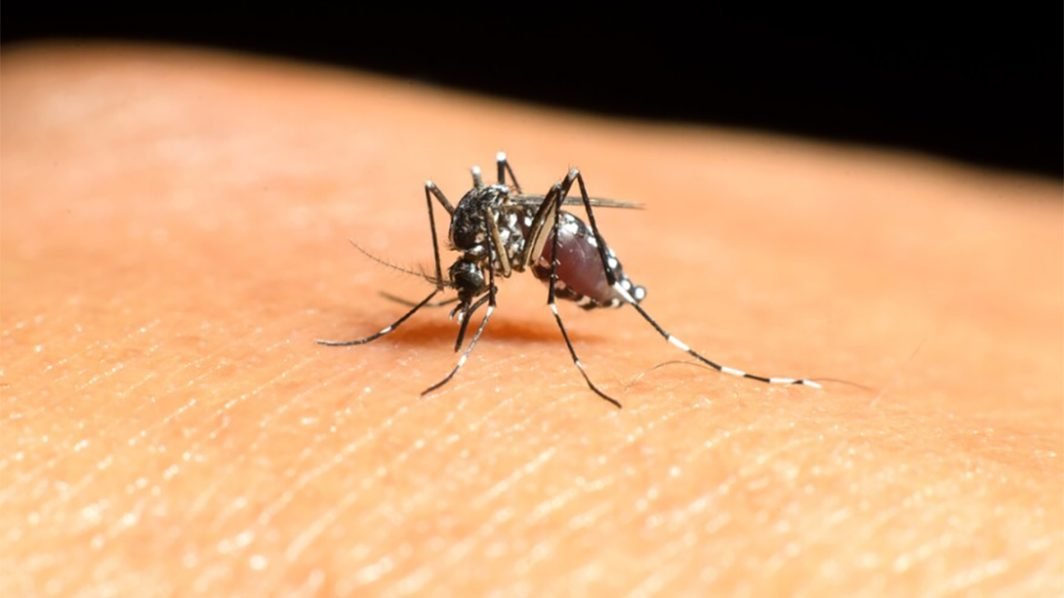
The West Nile virus (WNV) was first documented in Uganda in 1937.
The first case in the United States was reported in New York City
in 1999. Additional human cases are identified and deaths are
reported daily. Here’s what you need to know.
WHO CONTRACTS WNV?
WNV affects all races and men and women equally. The elderly,
chronically ill, or immunosuppressed are more likely to
become seriously ill or die from WNV.
HOW IS WNV TRANSMITTED?
— WNV is carried from animal to animal by mosquito bites.
Birds (especially crows) are the most common victims, but WNV
has infected horses and smaller animals as well.
— Birds, horses, humans, and other animals do not transmit the
disease. Mosquitoes do. Therefore, you will not get WNV if
you handle animals who are infected.
— The more mosquito bites you have, the more likely you are to
become infected. This does *not* mean that you should run
to the doctor or your emergency room when a mosquito bites
you. The likelihood that you have become infected is extremely
small.
HOW DO DOCTORS DIAGNOSE WNV?
— The signs and symptoms of WNV are fever, headache, loss of
appetite, nausea and vomiting, muscle pain, eye pain, rash,
and enlarged lymph glands. According to a recent article
in the Annals of Internal Medicine, the incubaton period
of WNV is from three to 14 days.
— WNV is dangerous when it develops into viral encephalitis or
viral meningitis. Symptoms of viral encephalitis include
confusion and a gradual loss of consciousness. Symptoms of
viral meningitis include a stiff neck and neurological signs
your doctor will recognize.
— Doctors diagnose WNV through a history and physical
examination. They also order a blood test to detect the
antibody to the WNV and or to find the virus itself in
the blood. A case is considered to be “probable West Nile
virus” when the WNV antibody is identified and “confirmed
West Nile virus” when the virus itself is identified in the
blood.
HOW DO DOCTORS TREAT WNV?
Treatment for WNV is entirely supportive because there is
no medication that specifically fights the disease. As with
any infection, be sure to drink plenty of fluids, get
adequate rest, and take fever reducers, such as acetaminophen
or aspirin, if you have symptoms of WNV. If you have the
symptoms and have been bitten by a mosquito recently, contact
your physician.
People who have viral encephalitis or viral meningitis
often require intensive care, medications to treat seizures,
a breathing machine, and replacement of fluids and electrolytes.
HOW CAN YOU PREVENT WNV?
— Drain any collections of stagnant water found in your yard,
neighborhood, or work place.
— Use mosquito repellants containing “DEET,” carefully
following package directions.
* Use a repellant that is no more than 10% DEET for children.
* Treat clothing, skin, bedding, tents and tent screens as
well as people.
* Avoid getting mosquito repellant on the hands to prevent
getting DEET into the mouth, eyes, ears.
— Wear long sleeves and long pants when outdoors.
— Avoid wearing bright colors or using perfumes outdoors. Both may
attract mosquitoes.
— Stay indoors from dusk to dawn, when mosquitoes are more active.
— Report dead birds or other animals to state and local health
departments.
— Cooperate with local health department and governmental efforts
to rid the community of mosquitoes. They use two types of
chemicals: Natural compounds that kill the larvae and methoprine
to kill adults. Methoprine can cause eye irritations or skin
rash, though the incidence is rare.




